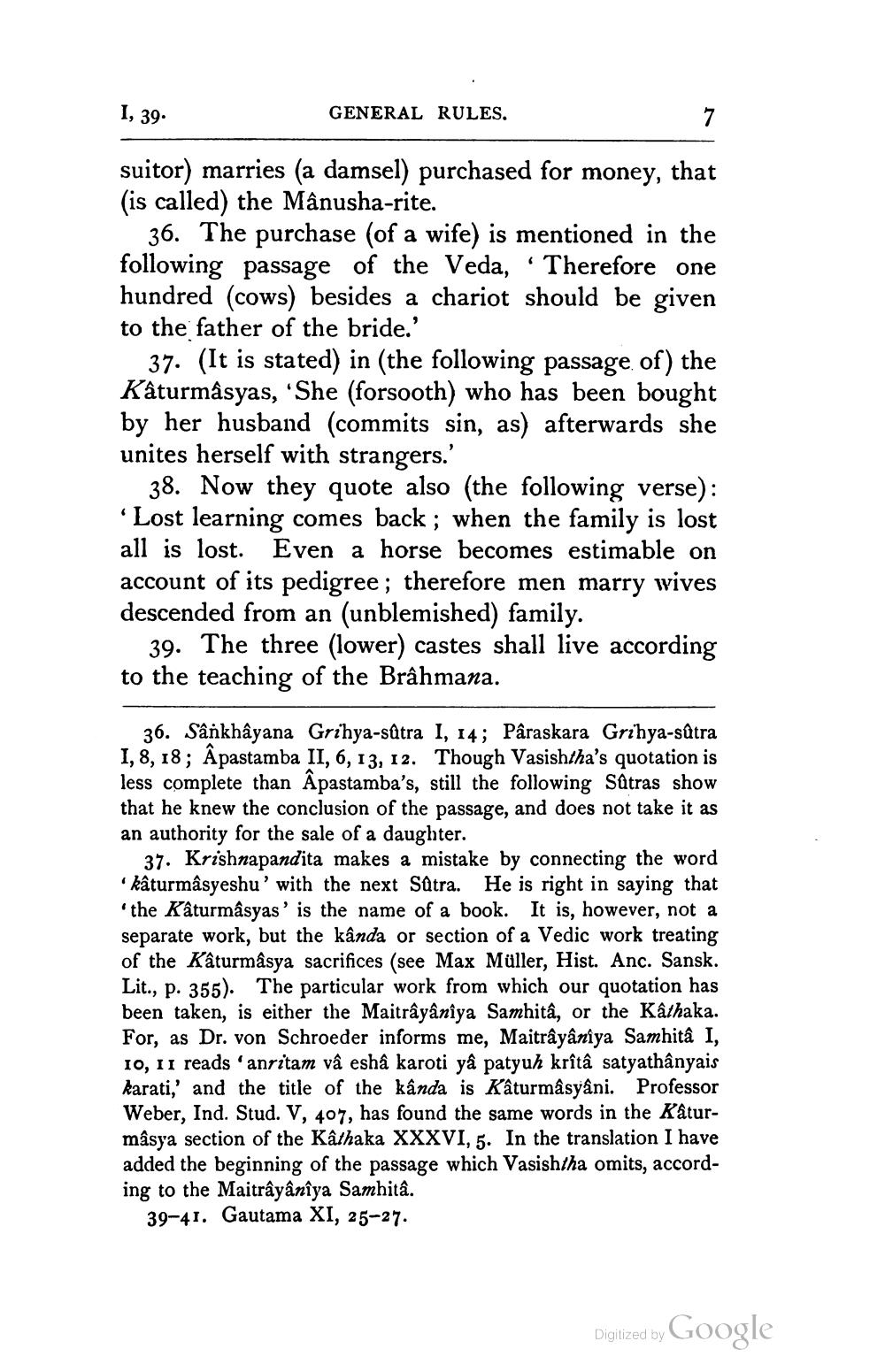________________
I, 39.
GENERAL RULES.
suitor) marries (a damsel) purchased for money, that (is called) the Mânusha-rite.
36. The purchase (of a wife) is mentioned in the following passage of the Veda, “Therefore one hundred (cows) besides a chariot should be given to the father of the bride.'
37. (It is stated) in (the following passage of) the Kâturmâsyas, 'She (forsooth) who has been bought by her husband (commits sin, as) afterwards she unites herself with strangers.'
38. Now they quote also the following verse): Lost learning comes back; when the family is lost all is lost. Even a horse becomes estimable on account of its pedigree; therefore men marry wives descended from an (unblemished) family.
39. The three (lower) castes shall live according to the teaching of the Brâhmana.
36. Sânkhâyana Grihya-sūtra 1, 14; Pâraskara Grihya-sûtra I, 8, 18; Apastamba II, 6, 13, 12. Though Vasishtha's quotation is less complete than Apastamba's, still the following Sätras show that he knew the conclusion of the passage, and does not take it as an authority for the sale of a daughter.
37. Krishnapandita makes a mistake by connecting the word kâturmâsyeshu' with the next Satra. He is right in saying that the Kâturmâsyas' is the name of a book. It is, however, not a separate work, but the kânda or section of a Vedic work treating of the Kâturmâsya sacrifices (see Max Müller, Hist. Anc. Sansk. Lit., p. 355). The particular work from which our quotation has been taken, is either the Maitrâyânîya Samhitâ, or the Kathaka. For, as Dr. von Schroeder informs me, Maitrâyâniya Samhita I, 10, 11 reads 'anritam vâ eshâ karoti yâ patyuh krîtâ satyathânyais karati,' and the title of the kânda is Kâturmâsyâni. Professor Weber, Ind. Stud. V, 407, has found the same words in the Katurmâsya section of the Kathaka XXXVI, 5. In the translation I have added the beginning of the passage which Vasishtha omits, according to the Maitrâyânîya Samhita.
39-41. Gautama XI, 25-27.
Digitized by Google




